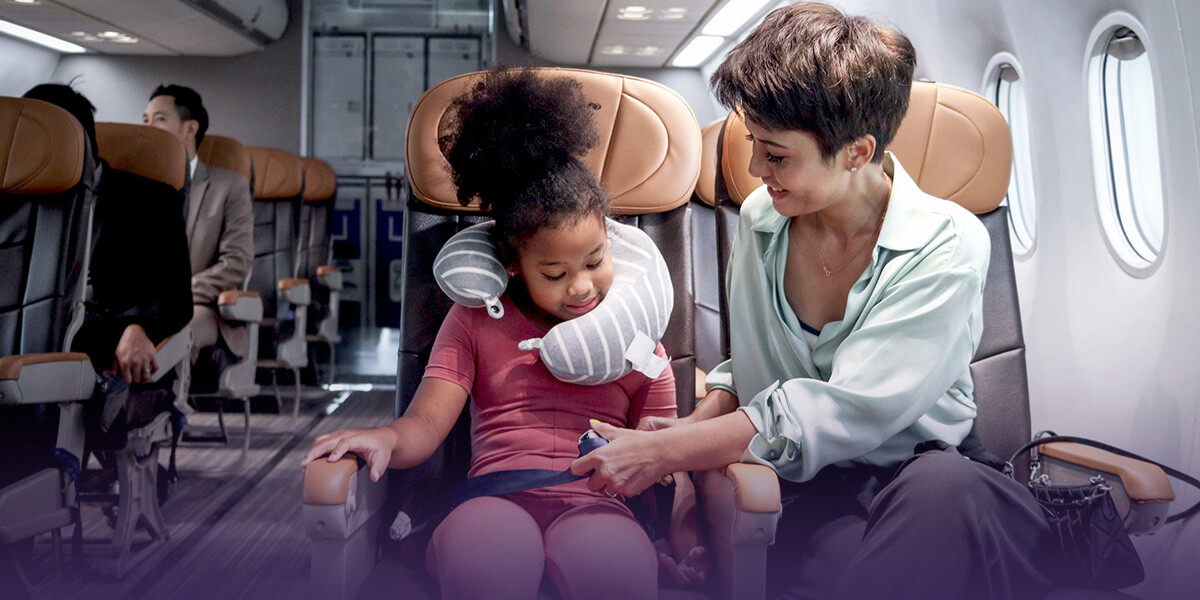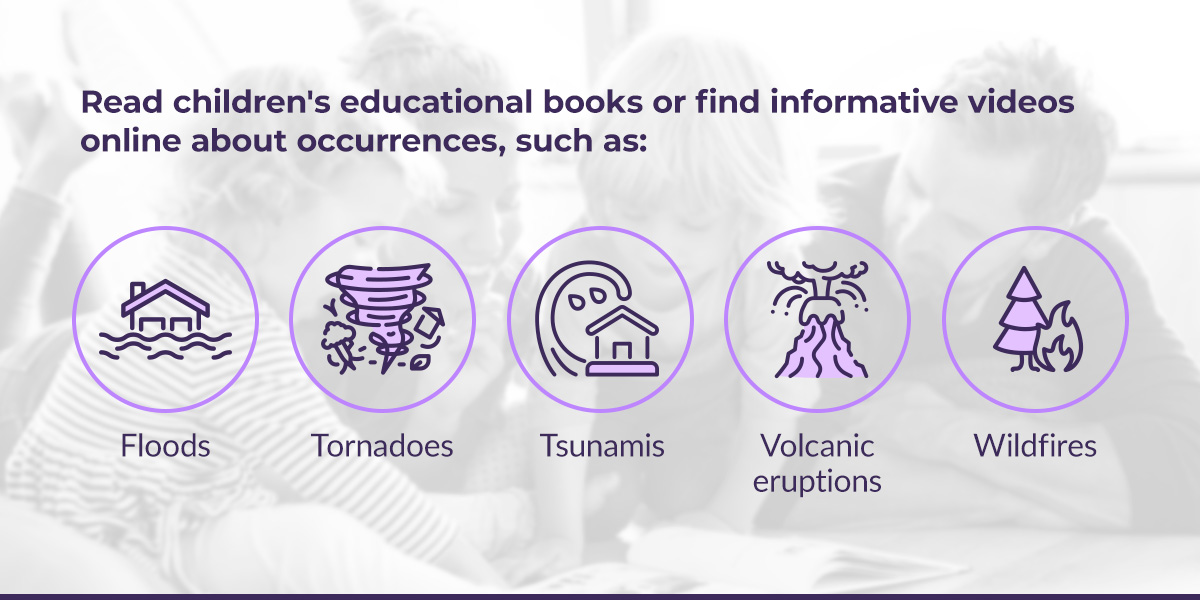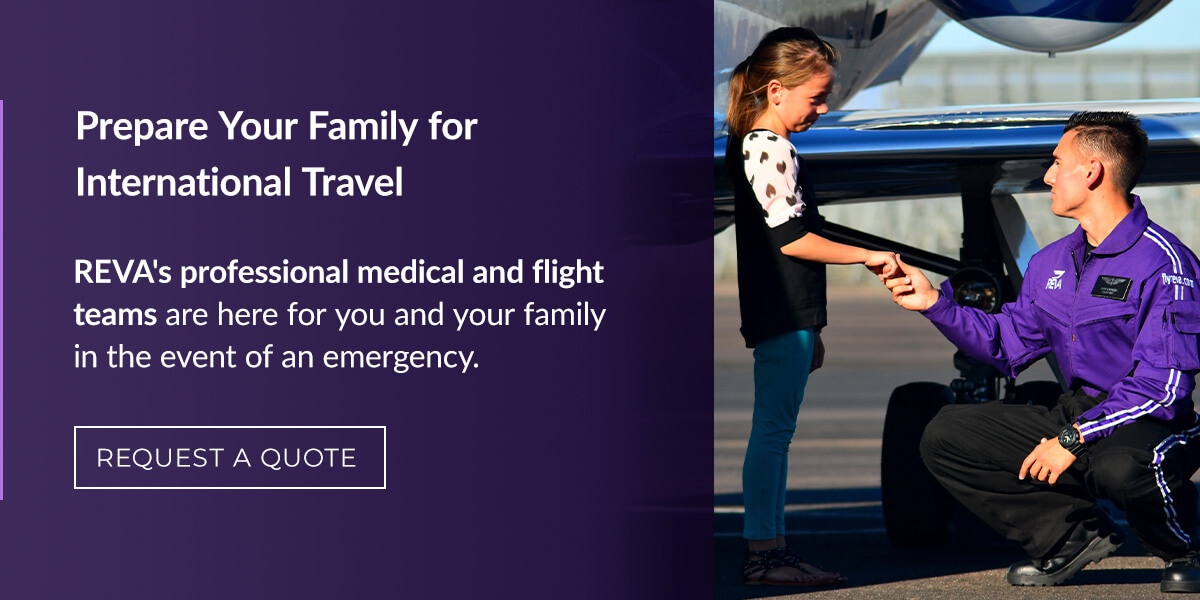Blog
STAYING ON THE FOREFRONT OF MEDICAL AIR TRANSPORTHow to Prepare Your Kids for a Medical Emergency
Preparing for a medical emergency is essential if you and your family live abroad or plan an international vacation. Emergency preparedness for children is especially vital because kids can become nervous or fearful in unfamiliar situations. Boarding an air ambulance and meeting medical personnel may feel overwhelming for many children, but you can ease their anxiety by helping them know what to expect.
How to Help Your Child Prepare for an Emergency
Various emergencies can happen while abroad. Consider how you can prepare your child for the following types of events.
Illness
As much as we try to avoid illness, you or a family member can become sick while vacationing or traveling abroad. Let your child know that hospitals and medical facilities are safe places full of people ready to help in the event of an illness.
Preparation is especially essential if your child has a chronic illness. Let your child help you pack medications such as inhalers or insulin so they know where the necessities are during your trip. You can also help them understand their medication schedule if they need to take certain medicines periodically. For example, you may plan for them to take their medication before exploring each day and then again after lunch.
Injuries
Injuries are also possible while traveling abroad. Any family member can experience a broken bone, wound, infection, animal bite or concussion, no matter where you travel. Whether your child experiences a severe jellyfish sting on vacation or you sprain your ankle while exploring a trail, it’s important to know what to do. You can typically handle minor injuries, such as small cuts or burns, with bandages and ointments. However, more serious injuries may require a medical evacuation flight to reach the nearest hospital or your home country.
To prepare your child for potential injuries abroad, let them help you create a first-aid kit. They can pick out their favorite decorated Band-Aids, and you can explain what different materials are for. For example, you can explain that antibiotic ointment helps prevent infection or helps heal the wound, and gauze helps blood stay inside a person’s body when they have a large wound.
You can also watch first-aid videos with your child if they express interest. Understanding that first-aid items are helpful and keep people safe can help your child feel more comfortable if they have to witness you or an emergency medical technician (EMT) perform first aid.
Natural Disasters
Natural disasters are possible in any country, so it’s necessary to educate your children about weather patterns and which ones are common in your area of residence or vacation abroad. Read children’s educational books or find informative videos online about occurrences, such as the following:
- Floods
- Tornadoes
- Tsunamis
- Volcanic eruptions
- Wildfires
Many natural disasters require quick evacuation. Let your child know that your family has a plan to leave safely if necessary. Your plan may include a car ride to the airport, a night in a storm shelter or a flight home. To ease your child’s fear in this type of situation, it’s best to explain your plan ahead of time so they feel included. Understanding what will happen in the event of a natural disaster can boost your child’s trust in you and their confidence that they are safe.
How to Prepare Kids for a Medical Emergency
Your family may require a medical evacuation in the event of an illness or injury, and you can help your child remain calm and comfortable during this process with some preparation. Consider these tips to prepare your child for potential medical emergencies.
Help Them Memorize Emergency Numbers
Your child may be familiar with your home country’s emergency number, but each country has a different emergency service phone number. Help your child memorize important numbers before your trip in case they need to contact fire or medical assistance. You can also have each family member carry a number for special medical assistance services, such as an evacuation flight company.
Explain How Medical Evacuations Work
Medical evacuation flights can transport you or a family member to the nearest hospital or a medical facility in your home country. In the event of an emergency, a highly-trained and experienced air ambulance team takes care of your medical needs during transport.
Ground and air ambulances may seem scary to kids at first, but exposure to these vehicles can help them feel safe in the event of an emergency. If you are able to, take your child to see ambulances or aircraft up close.
Whether you visit a safety demonstration at a fire department, tour aircraft at an aviation museum or watch online videos, seeing medical vehicles in a positive light is incredibly helpful for a child. If they need to board a medical evacuation flight, they will be less anxious about an ambulance or aircraft. Let your child know these vehicles are safe and take people to safe places when ill or injured.
Help Your Child Become Familiar With Medical Personnel
Medical personnel can also seem frightening if a child is unfamiliar with them. Uniforms, masks and medical equipment may induce anxiety, but you can prevent or reduce your child’s fear by familiarizing them with medical workers. Remind your child that EMTs and doctors are helpers who keep people safe. You can also read children’s books about medical personnel with your child or watch child-friendly videos about doctors and EMTs.
Tips for Preparing Your Child for a Medical Emergency or Natural Disaster
You should focus on boosting your child’s emergency-preparedness confidence rather than invoking fear. These tips can help you prepare your child for emergencies:
- Use positive language: Keep your conversations light, and use positive language to educate your child. For example, saying, “An air evacuation flight can take us to the hospital safely if we become ill,” is more positive than saying, “We may need to board a medical evacuation flight if something bad happens.”
- Gauge their comfort level: Letting your child help you pack a first-aid kit or watch emergency-preparedness videos is helpful if they express interest. However, you should avoid forcing them to participate if they are uncomfortable.
Prepare Your Family for International Travel
When you know how to prepare kids for emergencies, you can help them feel safe and calm in the event of an illness, injury or natural disaster. Letting your child help you prepare for emergencies and explaining potential scenarios using positive language are excellent ways to increase their confidence in unfamiliar situations.
REVA’s professional medical and flight teams are here for you and your family in the event of an emergency. If you become ill or injured abroad, we provide expert medical care while transporting you to the nearest hospital or taking you to your home country. Contact us to request a quote and learn more about medical air evacuation services.



